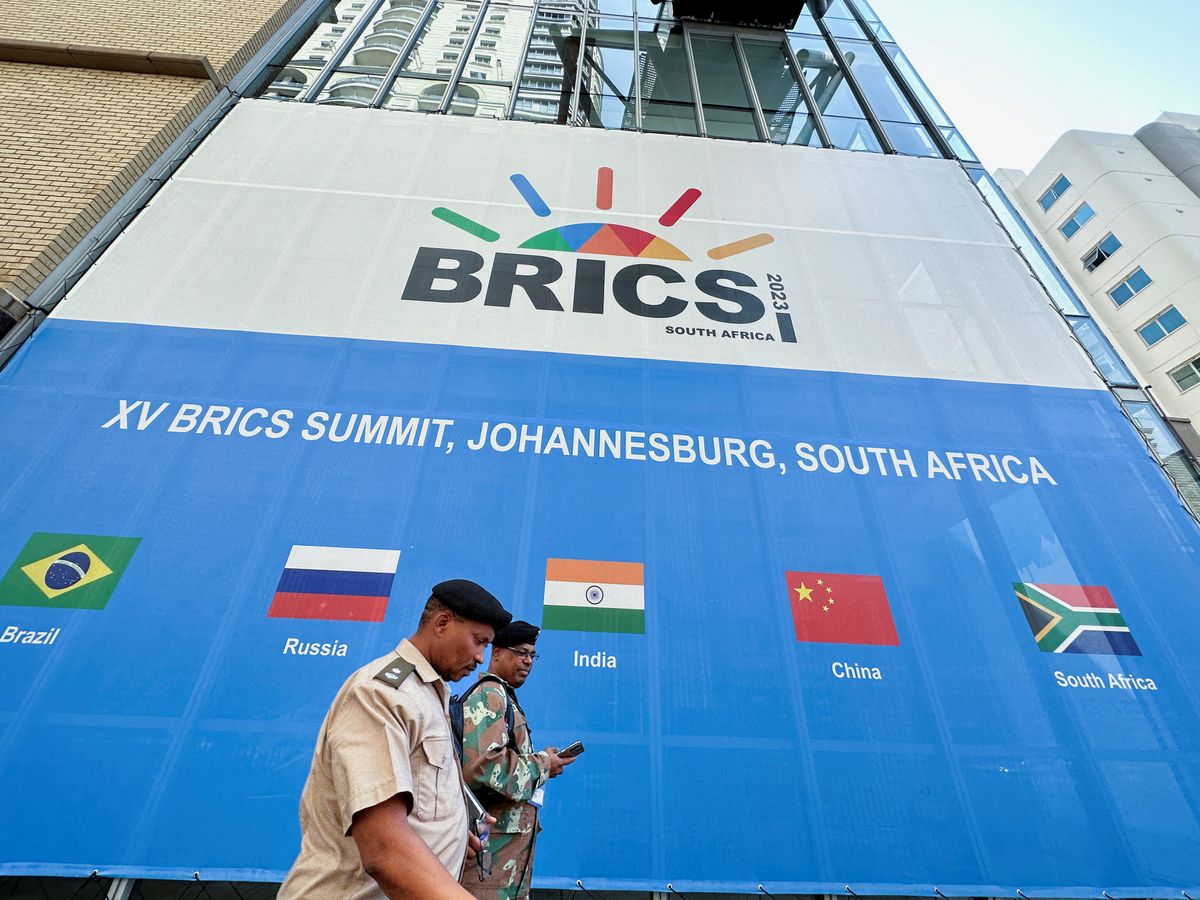A meeting of five large – and dissimilar – developing countries – Brazil, Russia, India, China, and South Africa – is currently underway in Johannesburg, South Africa, and there’s plenty of stuff to talk about.
The heads of state of each country are attending in person, excluding Russia’s Vladimir Putin, who is opting for a virtual meetup after the International Criminal Court released a warrant for his arrest earlier this year.
So, what’s on the agenda? One key sticking point is the bloc's potential expansion. More than 20 countries have put in official bids to join the group, with Iran, in particular, very keen to be tapped, making another pitch to the Chinese just before the summit began.
While Russia and China have pushed for expansions, believing it will help counter US-dominated institutions, the other three states, US allies, don’t want to undercut relations with Washington. They prefer to cast BRICS as broadly focused on emphasizing Global South interests, and not as a counterweight to US influence. Still, South Africa and Brazil support expansion to some degree: Brazil’s President Lula da Silva says that he backs the addition of the United Arab Emirates, Saudi Arabia, Argentina, and Indonesia, though it will likely be a long time before the member states reach a consensus on future bloc eligibility.
De-dollarization of the global economy also looms large over the summit. Beijing in particular has accused Washington of “weaponizing” the US dollar after imposing crippling sanctions on Russia, while the other BRICS states are also keen to see the greenback lose some of its dominance and to do more trade in local currencies. (However, the BRICS’s chief financial institution says it has no immediate plans to create its own currency.)
While there are signs that this message is resonating throughout the Global South – Argentina recently struck a deal with China to pay its International Monetary Fund debt in yuan – analysts broadly agree that the US dollar will remain the dominant force in global trade and finance (Ian Bremmer explained why in a recent column).
Since Russia invaded Ukraine, there’s been renewed attention on this group of important non-aligned nations. Washington, for its part, has tried hard to get states in the Global South to condemn Russia’s war and distance themselves from the Kremlin, but that attempt has largely fallen flat. This dynamic has emphasized a truism in global affairs: Most countries prefer not to choose between the US and its rivals.
Still, BRICS's disparate national and geopolitical interests, and overall lack of cohesion (consider that India and China remain regional rivals who have fought several bloody conflicts) impede it from making any significant progress – at least for now.



















